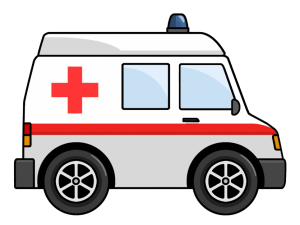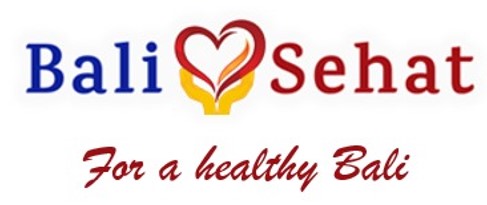Written by our friend The Travellist, who joined us on our most recent Healthy Day.
There is a Bali that most tourists don’t see. Most expats or ‘city’ dwelling locals don’t either for that matter. It’s a Bali where basic healthcare is a luxury and classes teaching children how to brush their teeth, a necessity.
Bali Sehat Humanitarian Project organises ‘Healthy Days’ in the remote and marginalised villages in Karangasem. This weekend I went with them and it was confronting, rewarding and educational, and left me feeling like a bit of a spoilt brat. We lost Wi-Fi for a few hours which on a normal day sends me into a hot sweaty panic. That day, I didn’t care. I grabbed a beer, sat on the black sand beach and wrote this. Having said that, had the beer run out and still no Wi-Fi, all bets are off as to when the panic would have set in.
The ‘Healthy Days’ are important because they bring much needed medical care to those who can’t travel to medical centres, are nervous about seeing a doctor, or simply feel more safe in a group. And it gathers many different health experts in one location, which the current Bali Sehat clinic simply doesn’t have room to facilitate.
The day sees medical professionals set up make-shift clinics at a local school. I have to say, I have never seen so many kids, beautifully dressed, giggling at the tall Western woman taking their photos and making mistakes with her Bahasa Indonesian. But they were also curious about what we were doing which was a fabulous starting point for the kids to learn about the importance of healthcare.
There were team members from Bali Pink Ribbon, Prima Medika, the faculty of Dentistry from Saraswati University in Karangasem, Rotary, Raise Your Glasses and optometrists from Denpasar, YPK, Viva Apotek and the pharmacists writing scripts for everyone, and AMURT Yayasan. These groups were providing blood pressure check ups, diabetes blood tests, medication, dental check ups, eye check ups, general consults with doctors, physiotherapy and rehab treatment, breast checks and pap smears, to over 370 people in just a few hours.


Countless people came in for check ups, some possibly for their very first doctor appointment. There were 91 women who had breast checks, and 20 were brave enough to have pap tests in the purpose built bus that travels all over Bali assisting women who can’t get to doctors or hospitals. Considering many of these women gave birth at home and didn’t see a doctor at all, this is a huge step.

One patient aged in her early 30’s was getting her eyes checked by the optometrist. She needs urgent care as she is going blind rapidly, for reasons unknown. Alongside the many others who are suffering from cataracts, she will be going to the wonderful John Fawcett Foundation soon. I can’t help but wonder if years of hard manual labour working the land in the sun, with no eye protection, has caused the prevalence of cataracts to be so high in these areas. Or perhaps it is simply the fact that medical and eye care is so readily and easily accessible in Australia, so treatment can begin earlier, preventing such catastrophic outcomes.
I sat in the breast check education session and noticed all the women subconsciously raise their hands to their breasts as the doctor explained the importance of self-examination. One woman in particular caught my attention. As the talk went on, her face became ashen and while her friends were animated and chatty, she got more serious. I hoped it was because it was the first time she had been to a doctor and was simply nervous, but I was worried and mentioned it to the Bali Sehat doctors and founders, Ray and Sue Bishop and Dr Angga.
At the end of the day, we talked to all the health care providers and got stories and information to be followed up. I asked Pink Ribbon how they went – one woman, of the 91 checked, needed care immediately as a 2 cm lump had been found. I described the nervous woman I had seen earlier and what she was wearing, and they confirmed that it was her. She knew she had the lump, she was young and had found it after the birth of her baby, but she didn’t know what it was.
The reality and importance of the work these people do hit home. I had to stop writing here, take a swig of beer and stop myself crying into my peanuts. These fabulous medical professionals and volunteers ARE saving lives.
Bali Sehat is based just outside of Amed. It cares for over 7000 patients every year, more now if you include the recent ‘Healthy Day’, but their current clinic is just too small. Bigger facilities and new equipment would mean more people could be treated, and education sessions could be held regularly. Cataracts, diabetes, strokes and arthritis are the most common conditions and seen in very high numbers. Prevention via education is so important as is fast, accessible and free treatment, as many of these villagers live off the land and on incomes less than $100 USD per year.

So, how can you help? Share this blog, tag friends in our posts on Facebook and Instagram who are coming to Bali or live in Bali, and the most obvious thing – donate.
Bricks for Bali is a fundraising effort to build a new clinic, big enough to support all the villages in the area. Bali Sehat has the land, permits and plans. Now they need the bricks. They will take any donation of course, but if you donate $100AUD or 1M IDR, you get your name or your business name engraved on a brick, plus we will shout your name from the rooftops of social media on the Bali Sehat pages and The Travellist pages. If you donate $200 AUD or 2 M IDR, then you get 2 bricks and so on.







Comments are closed